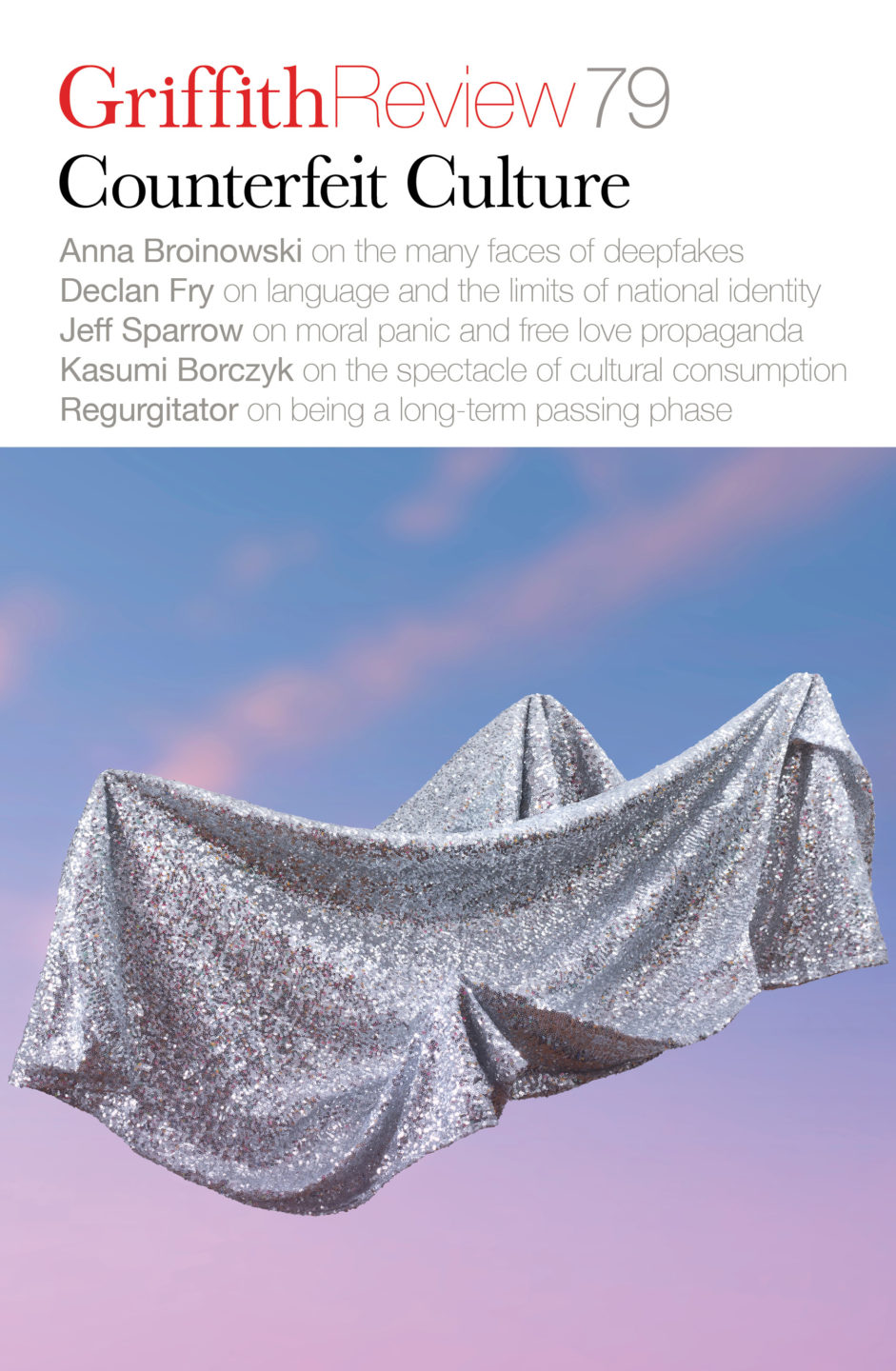Featured in

- Published 20230207
- ISBN: 978-1-922212-80-1
- Extent: 264pp
- Paperback (234 x 153mm), eBook


Already a subscriber? Sign in here
If you are an educator or student wishing to access content for study purposes please contact us at griffithreview@griffith.edu.au
Share article
More from author

A perfectly ordinary dachshund observes the problem of being
Poetry Breathing your small inauspicious body almost into incomprehension, supine and crouched, lost to the world, or to that portion only dachshund speech describes, your propulsive unyielding deeds...
More from this edition

Cusp
FictionWe were going to visit Patience’s supervisor Callista, a tenured senior lecturer in literature and cultural studies, though her strange, ageless grace made the word senior feel like a misnomer. I knew Patience would have chided me for this, saying it showed both my ageism and internalised misogyny, so these were among the thoughts I kept to myself.

Detachable penis
Non-fictionThree years into my transition during the 2021 lockdowns, my online shopping habit became a full-blown addiction. One of the weirder things that I purchased was a petite crocheted penis and testicles, hand-stitched by a crafty ‘bear’ called Devon. Each package was made-to-order, so I could choose everything from the shaft length to colour and testicle size. I could’ve even added ball hair.

Same old new village
FictionWe pass the food market, and the dining hall, where each morning I would take my grandmother to eat yong tofu, hot noodle soup with fishballs and stuffed tofu. She said she always wanted to eat, but in reality she wanted to show me off to her old friends.